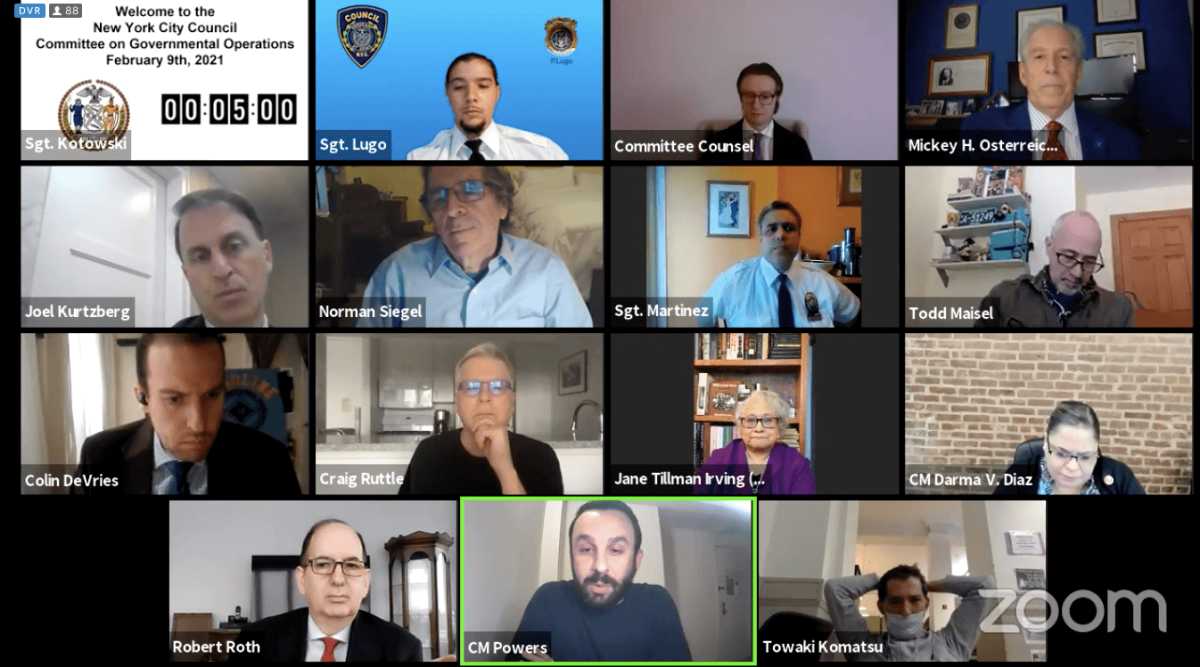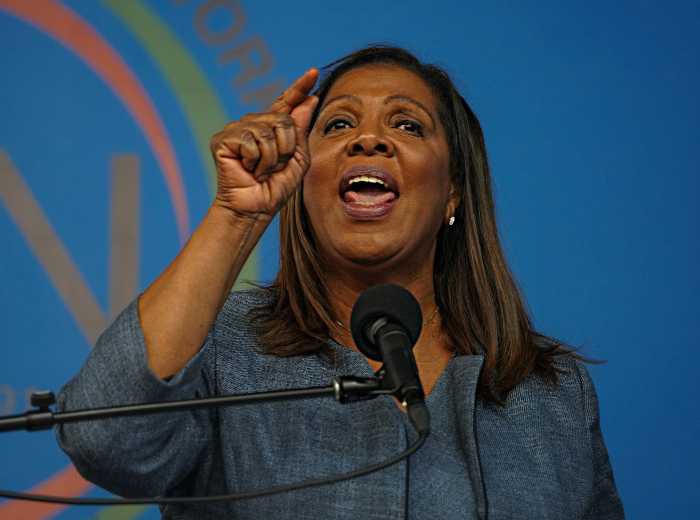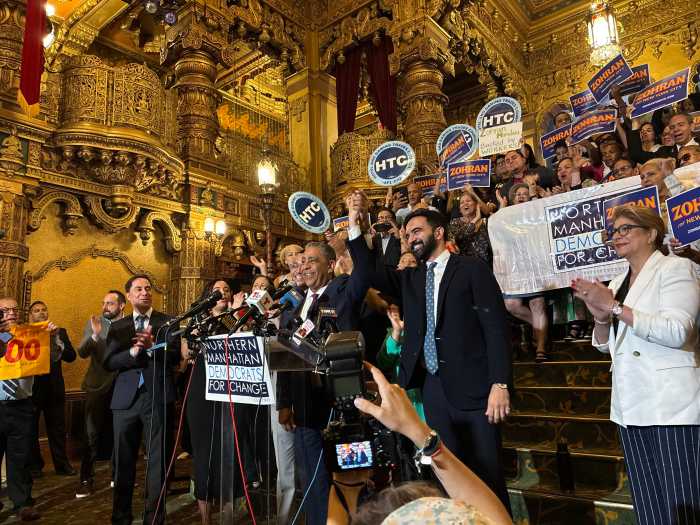The debate over whether not the NYPD should be responsible for approving press credentials was alive and well on Tuesday as City Council weighed a bill on transferring this duty to other agencies.
While a bill from Councilman Keith Powers, the center of Tuesday’s hearing, would have the Department of Citywide Administrative Services handle credentials, Mayor Bill de Blasio said during his morning press conference said the Office of Media and Entertainment would be better equipped to handle the responsibility.
For decades, the NYPD has stood as the gatekeeper of issuing press credentials to reporters and photographers across the city, enabling them access to cover crime scenes, fire zones, street events and protests. Applicants are thoroughly screened and must provide proof that their work has been published.
However, the arrest of journalists during the George Floyd demonstrations over the summer led many lawmakers to question whether the NYPD should continue to have that function.
“I believe it is the right time to move that function from the NYPD to the Mayor’s Office of Media and Entertainment,” de Blasio said. “I think the very orientation of that office MOME is a place that can best handle journalists, make sure they get the support they need, make sure the process goes smoothly, and quickly. It’s important that new journalists come on the scene and they get those credentials quickly and we do it the right way. Given that MOME has experience dealing with media and dealing with permitting on many levels, it’s the right home.”
Norman Siegel, former executive director of the New York Civil Liberties Union, says the NYPD should not be in charge of issuing press credentials stating the arrests of journalists, over the summer specifically, were not warranted under the law.
Siegel believes it should not even be under the purview of the city. It should be under the Department of Consumer Affairs. Whoever is in charge of this duty, they should not be “the judge and the jury,” he said in testimony.
Retired amNewYork Metro Breaking News Editor Todd Maisel, a prolific New York City photographer who worked 38 years in the industry, believed that NYPD’s handling of credentials was something that needed to continue as it has for about a century.
“I’m still in favor of the press cards being issued by the Police Department, because those cards are scrutinized extensively by law enforcement and act, essentially, as a security clearance at scenes of breaking news. They are not nor were they ever intended to be a license to practice journalism,” Maisel said, conceding that delays in issuing and renewing passes were a problem. “It would almost certainly put the NYPD in a position of arresting members of the press, rather than simply taking away their card… DCAS being the distributor of press cards would give the NYPD valid reasons to refuse to honor them. The truth of the matter is the NYPD has a more sophisticated vetting system than possibly any other state agency, let alone the city itself.”
Brooklyn Councilman Kalman Yeger touched on the age-old question of why a credential is even necessary in a reality with free press in which members of the media cannot be sorted from the public. Regardless, Yeger became the object of backlash when he expressed belief that the NYPD must have the discretion to “maintain order” in a “free society.”
According to NYPD officials testifying in the meeting, the department has up to 3,000 active press credentials out among journalists, while only five have been recently revoked.
In two of these cases, the credential was reinstated the next day.
“We’re trying to maintain the integrity of sometimes crime scenes or emergency situations where police lines are set up. But at the same time, there’s a recognition that the press, I mean, I think, we all agree is the fourth branch of government,” an NYPD official responded. “It keeps us all true, and honest, and reports the news to keep the public informed. So, there is an absolute need to have to have a press that’s able to have a vantage point that they can deliver the news to people sitting at home so those folks are aware.”
Media attorney Mickey Osterreicher also advocated for another governmental body to take on the responsibility of issuing passes as he notes that photographers were arrested at high rates during the George Floyd demonstrations.
NYPD officials also described the process of getting a press credential as “seamless” from the time an application is filed via email. In reality, appointments with DCPI at One Police Plaza can often be weeks away from the date it is scheduled. All press passes also expire on the same date regardless of when they are issued, such as Jan. 15, 2021.
The department had issued extensions on this due to COVID-19, despite this, Powers wondered whether or not NYPD was creating an “unnecessary backlog.”
Joel Kurtzberg, of Cahill Gordon & Reindel, remarked that journalists have no recourse or due process in the current system and that if another agency were to take over there would need to be set rules that protect the First Amendment rights of reporters and photographers.






























